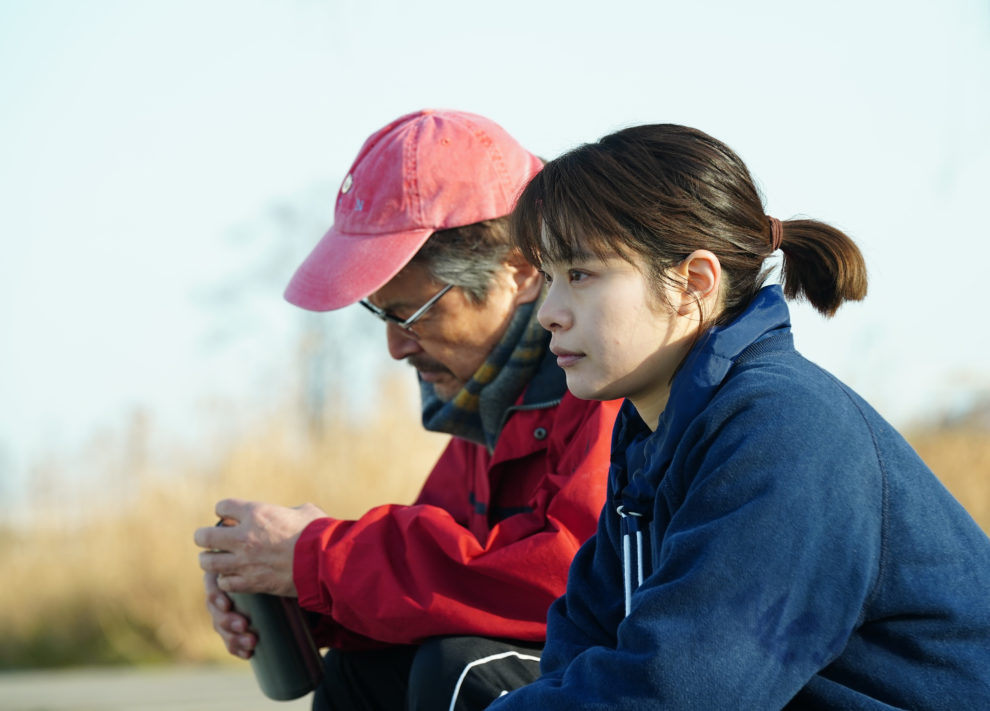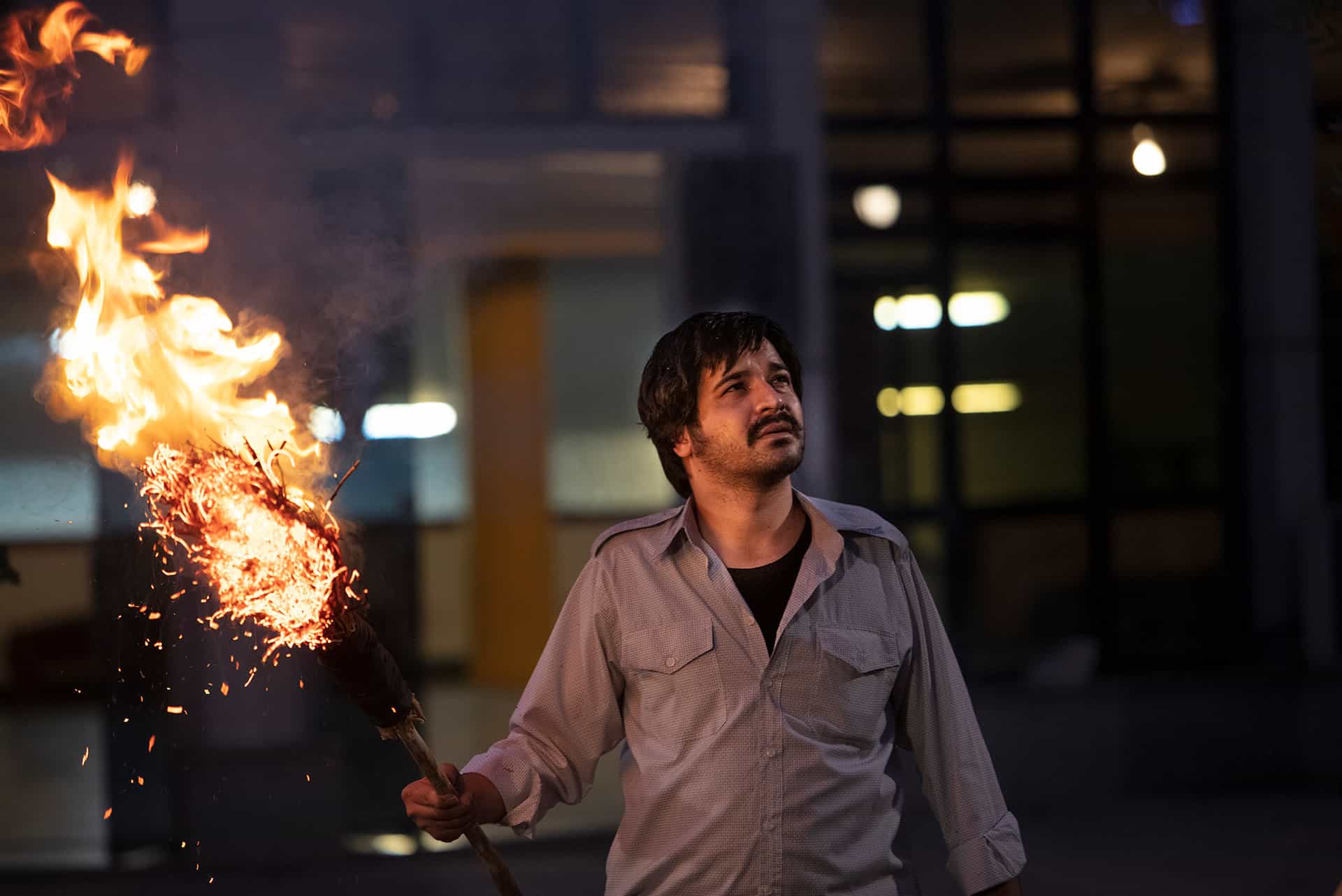The year is 2020, but according to the autobiographical book it is based on, the ‘monogatari' of Sho Miyake's truly impressive drama “Small, Slow but Steady” should be set in the 2010's. Looking at it, this is not the only trick the audience falls for – the film's beginning fools you into believing that you are watching a real deal, a documentary about the female boxer Keiko Ogasawara (Yukino Kishii) who entered history as the first professional with dissability in this sport. This is not only due to the opening cards informing the audience about the main protagonist's background and her inborn sensorineural hearing loss which resulted in no hearing in either ear, but equally as much by observing her during a long, intense training in the gym. We are additionally told that she became a licenced professional boxer in 2019 with an amazing victory in her first fight. Add to it the granular beauty of the film shot with 16mm by Hidetoshi Shinomiya, the cinematographer who was also responsible for Ryusuke Hamaguchi's Oscar-nominated drama “Drive My Car”, and the magic is complete.
Small, Slow but Steady screened at Berlin International Film Festival

Yukino Kishii delivers a stellar performance as a young woman with passion for, what is still believed to be – a very masculine sport, and she convinces with her composed, calm approach to the role. As we found out during the interview with Sho Miyake, the road to this seemingly smooth portrayal of Keiko's life took meticulous preparatiońs. Firstly, not only that Yukino had no previous experience with boxing, she also had to learn the sign language and to indulge into the world of silence. Also, the director himself had to learn a thing or two about this allegedly ‘noble' sport which doesn't take prisoners and ocassionally even take lives. Both of them took boxing lessons, and that wasn't the easiest thing to pull off.
The story is not painted in pathetic tones, and the notion of winners and losers is absent. This is a biopic many famous people would love to have had, should the market or money allowed it. We do root for Kieko, but we are not invited to love, mourn, feel pitty or take any stand with her for that matter. She is a person of flesh and blood whose destiny unfolds before our eyes, and we want the blood of her enemy flow and drench the boxing ring. She won't disappoint us in that department.
In the adapted script for the movie that Sho Miyake co-wrote with Masaaki Sakai, the story unfolds against the backdrop of Covid-19, and one of the oldest gyms in Tokyo, historically very important for the city, which had to close down due to pandemic and not as in the book, related to some other issues. The director takes us to other historic places surrounding the gym, eager to show Tokyo before the recent gentrification took place to erase some of its most authentic areas. Keiko doesn't onyl meet her trainer Mr. Sasaki (Tomokazu Miura) at the river bank, she also comes to enjoy a lunch with her hearing-impaired friends on a restaurant boat.
The bond between the aspiring boxer and her trainer is given in warm, accessible tone, and this is something Keiko Ogasawara was very particular about in her book. As we watch his health deteriorating, we can understand what this unexpected situation means for Keiko whose life is build up on the notion of trust to very few people in her surroudning. Not only the book, but the film as well gives an insight into the close-knitted boxing community not used to having a woman being taken seriously, and even less, someone with a dissability.
“Small, slow but steady” is a film that should travel further to spread its beauty to the world. It premiered in one of this year's strongest Berlinale sections , but as it usually happens on big festivals – you end up in a side bar, and you hope someone will notice how good your form is.
















